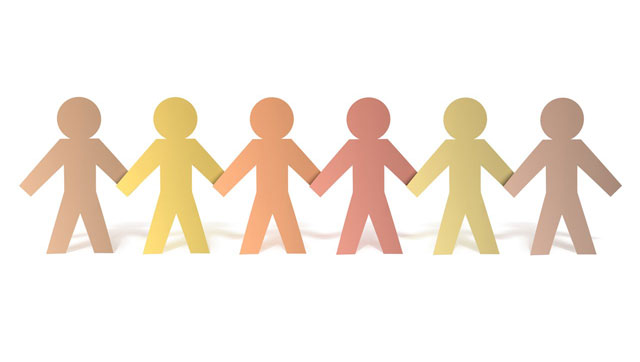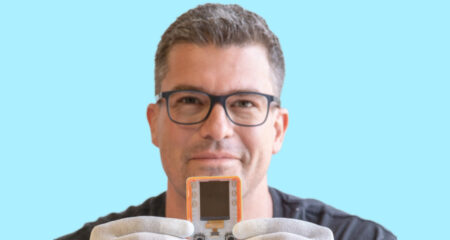 Imagine a company with no managers and no employees. Imagine that said company operates as a democracy, and that its shareholders vote electronically on every aspect of its operations. Sounds crazy, right? Except that such a company already exists, and is worth US$150m.
Imagine a company with no managers and no employees. Imagine that said company operates as a democracy, and that its shareholders vote electronically on every aspect of its operations. Sounds crazy, right? Except that such a company already exists, and is worth US$150m.
Established in April 2016, The DAO is the first significant example of a “democratic autonomous organisation” (which is where it gets its name). Instead of articles of incorporation and shareholder agreements, The DAO relies entirely on Ethereum, a decentralised smart-contracting platform.
In simple terms Ethereum is a network of independent computers that work together to maintain a shared public ledger of transactions. If that sounds a lot like bitcoin, that’s because Ethereum relies on blockchain technology very similar to the original cryptocurrency.
Although it has many similarities to bitcoin, Ethereum’s main purpose is different. Its mission is to facilitate and process smart contracts. These are chunks of computer logic that are triggered once a predetermined condition is met.
Here’s a simple example. Susan and Bob want to bet on the outcome of a sports event. Bob believes the red team will win, and Susan believes the blue team will win. So they set up a smart contract using Ethereum, and point that contract at a trusted website which lists the results of sports events.
Susan and Bob then both deposit an amount of “ether” (the currency of Ethereum) into the contract’s account. The smart contract then waits until the results of the game are published. As soon as the result is confirmed, it automatically transfers all of the ether to the winner. (It turns out that Susan won. Go blue team!)
But what if Bob gets cold feet and wants to cancel the bet? He can’t. The contract is now an official transaction on the Ethereum blockchain — the public ledger maintained by the platform.
Bob could try to change that ledger himself and cancel the contract, but he would be competing with hundreds of thousands of other computers which would invalidate and discard any attempts to falsely alter that ledger.
This is the Internet of value — the Internet of money — and it could change everything
This is the power of the blockchain — it allows two parties who do not trust one another to make an agreement without the need for a third party to arbitrate. And once in motion, the agreement cannot be altered. Bob cannot choose not to pay Susan. His cheque cannot bounce. And Susan, in turn, cannot forgive Bob’s debt — at least not as part of the original contract.
A democratic autonomous organisation is, in essence, just a big bundle of interrelated smart contracts. This allows you to define the workings of an entire organisation in computer code. Your membership contract could, for example, specify that the only way for a new member to join an organisation would be for two existing members to nominate them. That nomination becomes a transaction and is processed via the blockchain, just like Bob and Susan’s bet.
Ethereum can support any kind of organisation, from stokvel to an online chess club. The DAO, for example, has a structure quite similar to a traditional venture capital fund. A group of shareholders (called “token holders”) have invested their ether into the vehicle. This gives them the right to vote on proposals.
These proposals come from companies or people who want to use The DAO’s resources (its ether) to create something. Since ether can be exchanged for both bitcoins and for traditional currency, you can think of this as capital that can be used to fund anything from a new iPhone application to a neighbourhood coffee shop (assuming people are willing to pay for coffee in a cryptocurrency).
If a company’s proposal is successful — in other words, it is accepted by the majority of the token holders — then it triggers a cascade of other contracts that allow for suppliers to be paid as milestones are reached, for finished products to be sold, and for The DAO to earn ether back on its investment.

The DAO operates entirely within the Ethereum network in that both payments and revenues will be denominated in ether. However, it is possible, in theory, for smart contracts to trigger everything from bitcoin payments to traditional money transfers to the transfer of a physical property via a title deed.
In fact, a company, DAO.Link, has already been established to serve as a bridge between blockchain-based organisations and the physical world. This means contractors need not be cryptocurrency experts in order to participate in a project, and that taxes and other regulations can be adhered to.
An obvious question here is why on earth anyone would bother to invest in such an arcane and uncertain vehicle. The Ethereum platform ensures anonymity for these investors, but it’s a safe bet that they are a mix of tech utopians, cryptocurrency bulls and old fashioned geeks.
These are pioneers, not value investors. They are betting that this is the first example of an entirely new economic unit. In that context, the act of investing is almost as important as the possible return.
If it works, The DAO will prove that investors can make collective decisions that are superior to those made by middlemen like banks and investment firms. It will show that it is possible to allocate capital safely and efficiently without the vast and sometimes corrupt machinery of the global financial system. This is the ideal for which Ethereum and The DAO are striving.
The DAO may fail, as may Ethereum and bitcoin. But the ideas that they have unleashed are unstoppable
But the road to an entirely new paradigm is never smooth. On 27 May, a group of computer scientists released a paper in which they point out vulnerabilities in the voting mechanisms that underpin The DAO.
The vulnerabilities could allow bad actors to subvert and hijack the voting process and embezzle or misuse funds. The group calls for a temporary moratorium on operations until these holes can be plugged. That’s probably a sensible course of action considering both the money and the reputation at stake.
The DAO may fail, as may Ethereum and bitcoin. But the ideas that they have unleashed are unstoppable. Paper money must have seemed utterly ridiculous and completely impractical at first, but now we accept it without even thinking. The invention of the blockchain is as significant as the advent of paper money, if not more so.
So, look past the jargon and the hype and see what Ethereum and its brethren represent: a new way to exchange value and capital, without relying on the parasites and vultures who guard the gates to traditional financial markets. This is the Internet of value — the Internet of money — and it could change everything. — (c) 2016 NewsCentral Media




